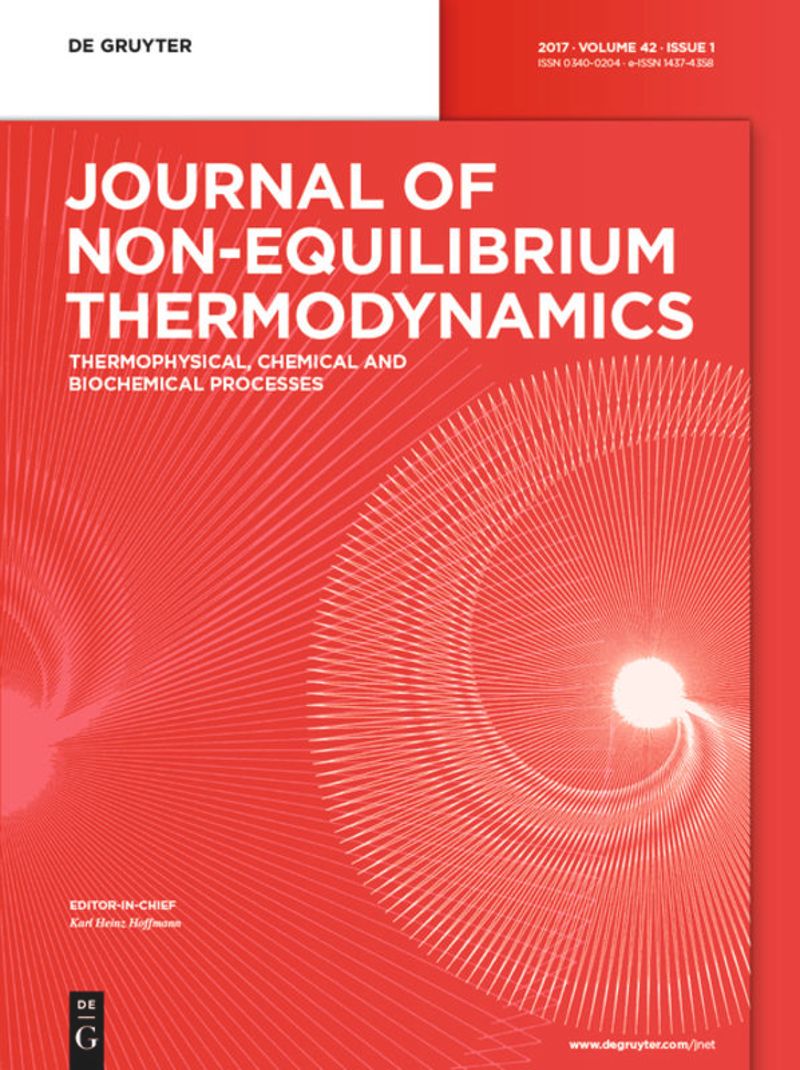Exergy-based efficient ecological-function optimization for endoreversible Carnot refrigerators
IF 4.2
3区 工程技术
Q1 MECHANICS
引用次数: 0
Abstract
Based on the definition of exergy-based efficient ecological-function (EEF) proposed in the existing literature, which is the product of energy conversion coefficient-of-performance (内可逆卡诺冰箱基于火用的高效生态功能优化
基于现有文献提出的高效生态功能(EEF)的定义,即能量转换系数与高效生态功能(E)的乘积,本文将高效生态功能引入卡诺制冷机循环的性能优化中。利用文献中建立的内可逆卡诺制冷机模型,基于有限时间热力学理论推导了制冷机火用EEF的表达式,研究了无因次火用EEF与冷负荷(R)的关系,比较了最大火用EEF、最大E和最大有效冷负荷工况下制冷机循环的性能差异。结果表明:基于无因次能的EEF与R和i呈抛物线型关系;在实际设计中,制冷机应在较大的R点和R点进行设计。以火用EEF为优化目标时,R虽略有减小,但η增大,熵生成率σ大大减小,因此火用EEF不仅反映了R与σ的折衷,也反映了R与η的折衷。
本文章由计算机程序翻译,如有差异,请以英文原文为准。
求助全文
约1分钟内获得全文
求助全文
来源期刊
CiteScore
9.10
自引率
18.20%
发文量
31
审稿时长
1 months
期刊介绍:
The Journal of Non-Equilibrium Thermodynamics serves as an international publication organ for new ideas, insights and results on non-equilibrium phenomena in science, engineering and related natural systems. The central aim of the journal is to provide a bridge between science and engineering and to promote scientific exchange on a) newly observed non-equilibrium phenomena, b) analytic or numeric modeling for their interpretation, c) vanguard methods to describe non-equilibrium phenomena.
Contributions should – among others – present novel approaches to analyzing, modeling and optimizing processes of engineering relevance such as transport processes of mass, momentum and energy, separation of fluid phases, reproduction of living cells, or energy conversion. The journal is particularly interested in contributions which add to the basic understanding of non-equilibrium phenomena in science and engineering, with systems of interest ranging from the macro- to the nano-level.
The Journal of Non-Equilibrium Thermodynamics has recently expanded its scope to place new emphasis on theoretical and experimental investigations of non-equilibrium phenomena in thermophysical, chemical, biochemical and abstract model systems of engineering relevance. We are therefore pleased to invite submissions which present newly observed non-equilibrium phenomena, analytic or fuzzy models for their interpretation, or new methods for their description.

 求助内容:
求助内容: 应助结果提醒方式:
应助结果提醒方式:


